
Boe: Nauru's Coastal Gem
Boe is a quaint district located on the western coast of Nauru, the smallest island nation in the world. This serene locale offers a unique blend of natural beauty and rich cultural heritage, making it a perfect getaway for those seeking tranquility away from bustling city life. The pristine beaches of Boe are a major attraction, with their soft white sands and crystal-clear waters. The calm ocean is ideal for swimming, snorkeling, and simply relaxing by the shore. Boe's coastal charm is further enhanced by the breathtaking sunsets that paint the sky in hues of orange and pink, offering a picturesque end to your day. Beyond its beaches, Boe is home to friendly locals who are eager to share their culture and traditions. Visiting the local markets and interacting with the residents provides an authentic insight into the island's way of life. Don't miss out on sampling the local cuisine, which features fresh seafood and tropical fruits, offering a delightful culinary experience. Boe also serves as a gateway to exploring the rest of Nauru. The island's compact size makes it easy to venture out and discover other districts, each with its own unique charm. Whether you're hiking through lush forests or exploring historical sites, Boe's central location makes it an ideal base for your Nauru adventure.
Local tips in Boe
- Visit early in the morning or late afternoon to avoid the midday heat.
- Bring cash, as there are limited ATMs on the island.
- Engage with the locals to learn about the best spots and hidden gems.
- Try local dishes such as coconut fish and fresh tropical fruits.
- Wear reef-safe sunscreen to protect the marine life while swimming or snorkeling.
Boe: Nauru's Coastal Gem
Boe is a quaint district located on the western coast of Nauru, the smallest island nation in the world. This serene locale offers a unique blend of natural beauty and rich cultural heritage, making it a perfect getaway for those seeking tranquility away from bustling city life. The pristine beaches of Boe are a major attraction, with their soft white sands and crystal-clear waters. The calm ocean is ideal for swimming, snorkeling, and simply relaxing by the shore. Boe's coastal charm is further enhanced by the breathtaking sunsets that paint the sky in hues of orange and pink, offering a picturesque end to your day. Beyond its beaches, Boe is home to friendly locals who are eager to share their culture and traditions. Visiting the local markets and interacting with the residents provides an authentic insight into the island's way of life. Don't miss out on sampling the local cuisine, which features fresh seafood and tropical fruits, offering a delightful culinary experience. Boe also serves as a gateway to exploring the rest of Nauru. The island's compact size makes it easy to venture out and discover other districts, each with its own unique charm. Whether you're hiking through lush forests or exploring historical sites, Boe's central location makes it an ideal base for your Nauru adventure.
When is the best time to go to Boe?
Iconic landmarks you can’t miss
Menen Hotel
Experience the charm of Ibwenape at Menen Hotel, your comfortable retreat with local flair and convenient access to stunning attractions.

Nauru International Airport
Discover the tranquil beauty of Nauru through its gateway, Nauru International Airport, where adventure begins amidst paradise.
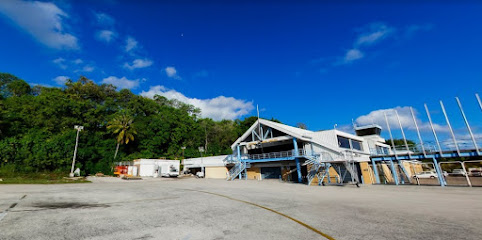
Nauru Australian Immigration Detention Center
Discover Nauru's Immigration Detention Center, a poignant site reflecting complex immigration issues in a stunning island setting.
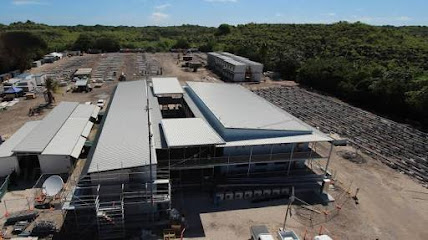
Capelle and Partner
Explore Capelle and Partner in Ronave: A shopping paradise featuring local crafts, diverse cuisines, and vibrant entertainment for an unforgettable experience.
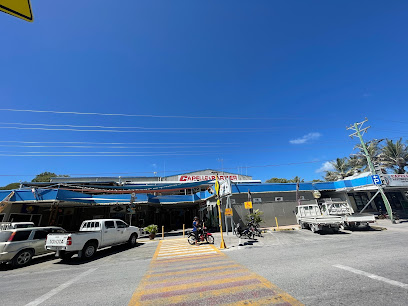
Ewa Lodge
Discover tranquility and comfort at Ewa Lodge in Ronave, a perfect serviced accommodation for tourists seeking relaxation and local exploration.
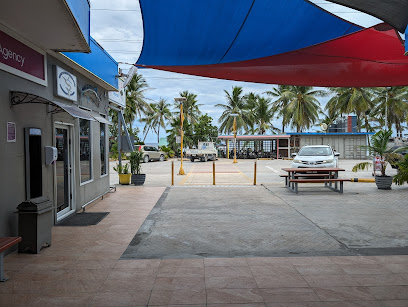
Geography of Nauru
Explore Nauru Island's stunning landscapes, rich history, and vibrant culture for an unforgettable Pacific adventure.
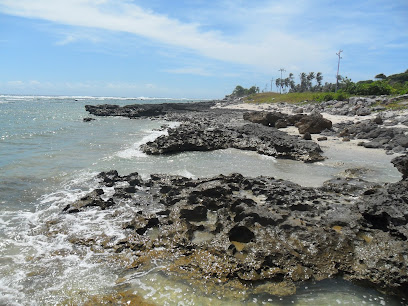
Od-N Aiwo Hotel
Experience the charm and comfort of Od-N Aiwo Hotel, your gateway to exploring the tranquil beauty of Nauru's landscapes and culture.

Nauru
Explore Nauru, a serene and secluded island paradise with stunning landscapes, rich culture, and a warm community waiting to be discovered.
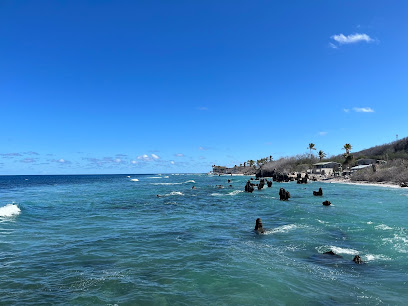
Anibare Bay
Experience the tranquil beauty of Anibare Bay, a hidden gem in Nauru with stunning waters, lush landscapes, and unforgettable sunsets.
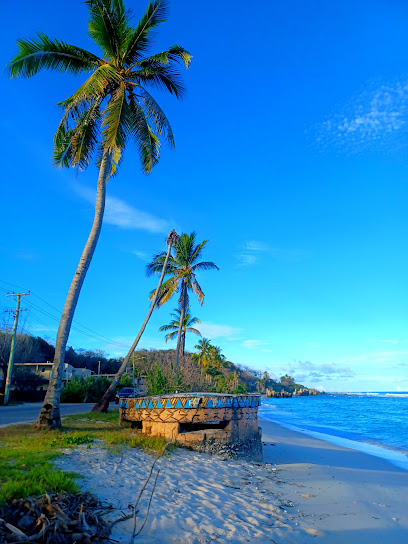
Naoero Museum
Explore the rich cultural heritage of Nauru at the Naoero Museum, where history comes to life through engaging exhibits and local stories.
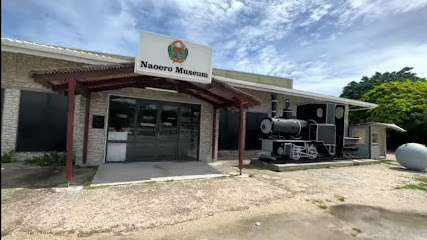
Buada Lagoon
Explore Buada Lagoon, a tranquil freshwater paradise in Nauru, where lush landscapes and serene waters create the perfect escape for nature enthusiasts.
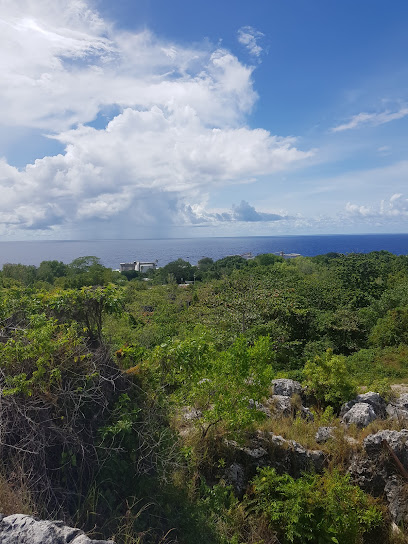
Moqua Well
Experience the serene beauty of Moqua Well in Nauru, a tranquil lake that captivates with its vibrant aquatic life and stunning natural scenery.
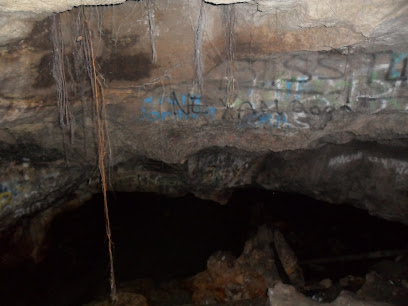
Central Plateau
Experience the breathtaking beauty and rich cultural heritage of the Central Plateau in Nauru – a hidden gem for adventure seekers and nature lovers.

Nauru Tourism Corporation
Explore the hidden gems of Nauru with the Nauru Tourism Corporation—your ultimate travel companion on this enchanting island.
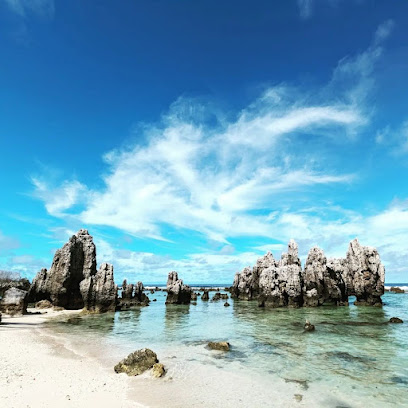
Moqua Caves
Explore the breathtaking Moqua Caves in Nauru, a natural wonder filled with stunning formations and serene landscapes perfect for adventure and relaxation.

Essential places to dine
The Bay Restaurant
Experience exquisite seafood and stunning ocean views at The Bay Restaurant in Anibare.
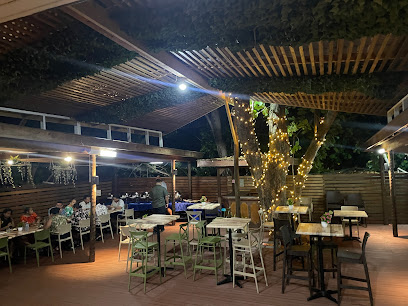
OMG Sushi Restaurant
Discover authentic Japanese flavors at OMG Sushi Restaurant in Orro - where fresh ingredients meet culinary artistry.
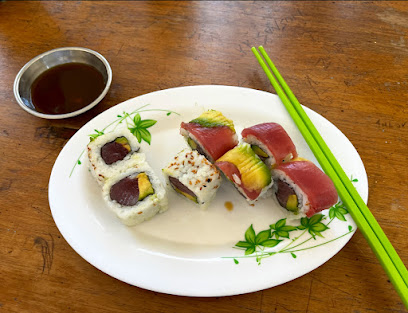
Mr Chippies
Discover authentic local cuisine at Mr Chippies in Anibare, where every dish tells a story and every bite is a taste of paradise.
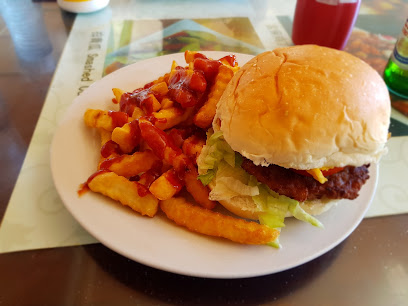
Star Kingdom
Experience authentic Asian cuisine at Star Kingdom in Boe - where every dish tells a flavorful story.
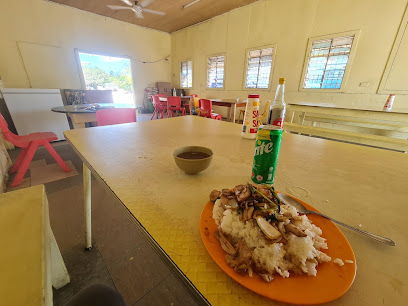
Chinese Restaurant Buada
Experience authentic Chinese cuisine at Buada in Arenibek – where every dish tells a story.

Praises Restaurant
Experience authentic Chinese cuisine at Praises Restaurant in Anabar—where every dish tells a story.
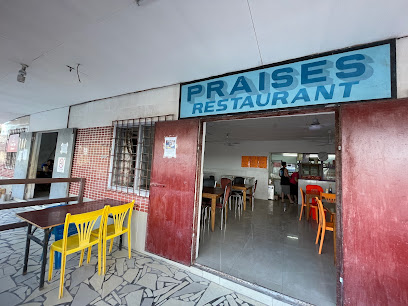
Anibare Boat Harbour Restaurant
Discover exquisite flavors and breathtaking views at Anibare Boat Harbour Restaurant in Nauru – where culinary delight meets coastal beauty.
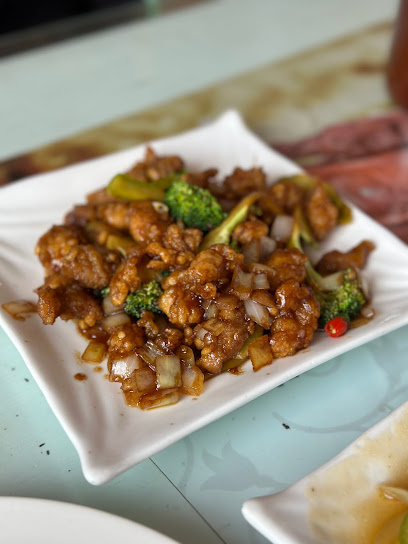
Florrowest Restaurant
Experience authentic local flavors at Florrowest Restaurant in Boe - where every dish tells a story.
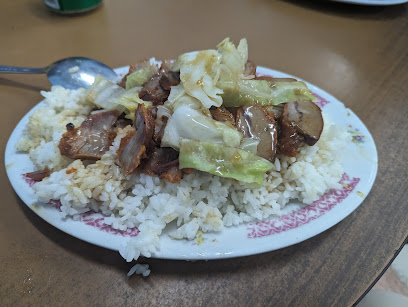
Somewhere Else in Nauru
Discover the vibrant flavors of Nauru at Somewhere Else - a delightful restaurant offering local cuisine in Arijejen.
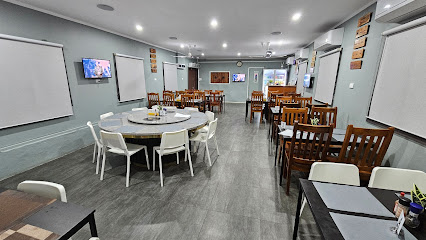
Lucky Tigeress Yum Cha
Savor delightful dim sum and breakfast specialties at Lucky Tigeress Yum Cha in Arijejen—where every morning begins deliciously.
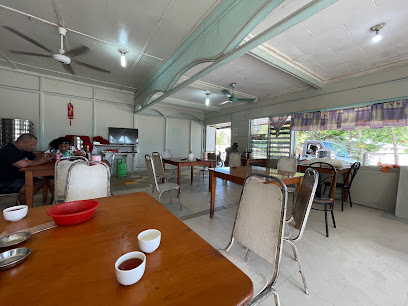
Moon River Restaurant
Experience authentic Chinese cuisine with stunning waterfront views at Moon River Restaurant in Arijejen.
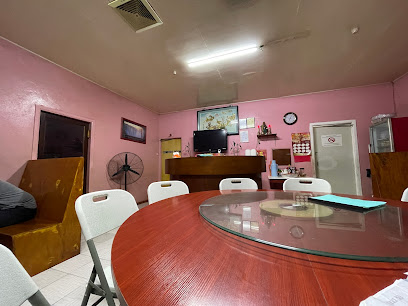
Jullem
Experience authentic Chinese cuisine at Jullem in Anibare, where every dish tells a story filled with rich flavors and tradition.
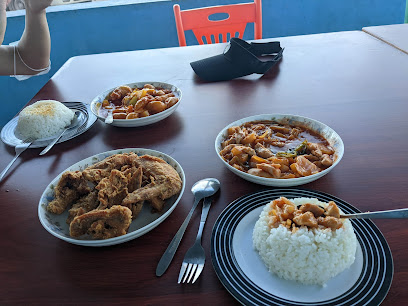
J’ RESTAURANT
Experience the best of authentic Chinese cuisine at J’ RESTAURANT in Arijejen—where flavors come alive!
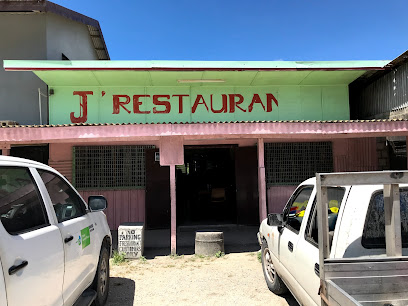
Double J
Experience authentic local cuisine at Double J in Ibwenape - where every dish tells a story.
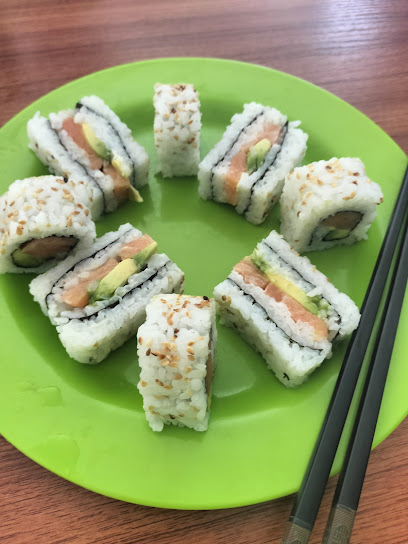
Crystal Kitchen
Experience delightful family dining at Crystal Kitchen in Anibare, where delicious cuisine meets warm hospitality.
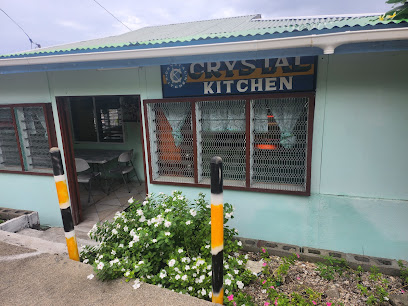
Markets, malls and hidden boutiques
Eigigu Supermarket
Discover the vibrant flavors and local delicacies at Eigigu Supermarket in Boe, your gateway to authentic culinary experiences.
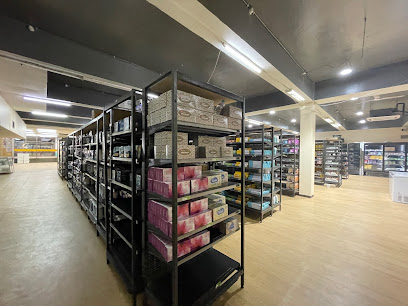
Pacific store
Explore the vibrant offerings of Pacific Store in Nibok, your go-to grocery shop for local flavors and essentials during your travels.
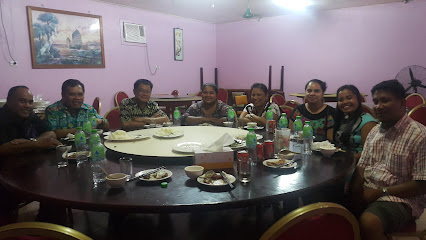
Zombies Store
Explore the quirky charm of Zombies Store in Yaren, where unique goods and friendly service await every traveler.

Vim No.1 Store
Explore the vibrant Vim No.1 Store in Arijejen for local flavors and essentials that encapsulate the spirit of Nauru.
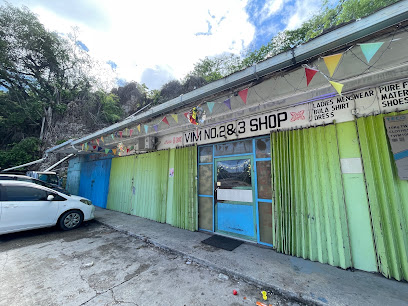
Ataro Bay Store
Explore local flavors and essential supplies at Ataro Bay Store, your go-to grocery stop on Island Ring Rd, perfect for tourists and locals alike.
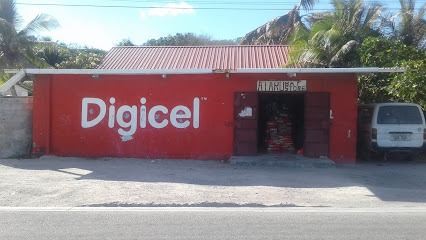
Milton Ross Store
Explore Milton Ross Store, your friendly supermarket in Yaren, offering local delights and essentials for every traveler on the island.
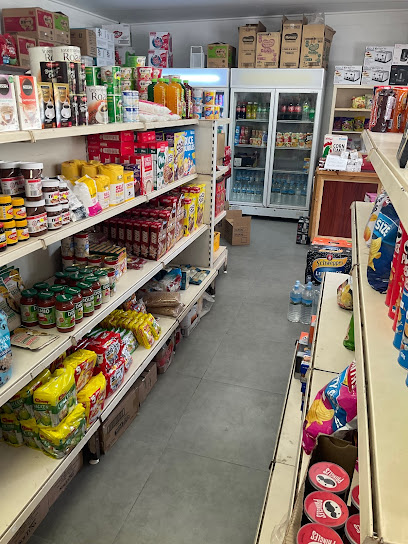
Elizabeth's Garden
Explore Elizabeth's Garden in Boe, where unique treasures and friendly service await every traveler.
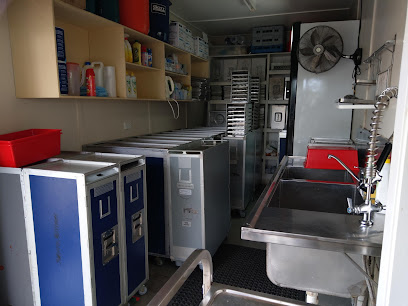
Sunset Corner Enterprise
Discover local treasures and essentials at Sunset Corner Enterprise, the heart of Borderline’s shopping experience.

Rainbow Store
Discover the charm of Baiti at the Rainbow Store, where local flavors and convenience meet in a vibrant shopping experience.
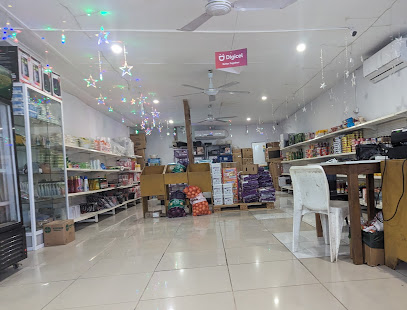
Tuka Luka Store
Explore the essence of Nauru at Tuka Luka Store, a charming shop offering unique local clothing and accessories in Yaren.

MyStore
Explore local flavors and convenient essentials at MyStore in Yaren, the perfect general store for every tourist's needs.

Pick n Save
Discover local flavors and everyday essentials at Pick n Save, the vibrant general store in Yaren, Nauru.
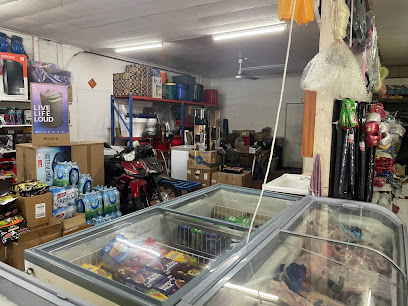
Aredetõ Store
Discover Aredetõ Store in Arenibek for all your travel essentials, from snacks to local goods, making your stay enjoyable and hassle-free.

Halo Store
Explore the unique offerings of Halo Store in Arenibek, where local culture and charming products come together for an unforgettable shopping experience.
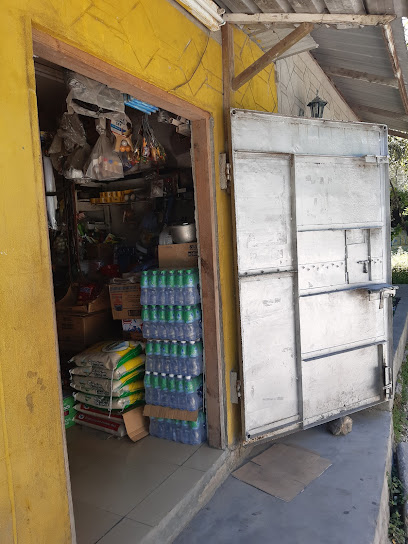
Abwan Warehouse
Explore Abwan Warehouse in Nibok, Arijejen – a treasure trove of unique home goods and local crafts reflecting the island's vibrant culture.

Essential bars & hidden hideouts
Menen Hotel
Experience the warmth of Nauru at Menen Hotel, where comfort meets local charm for an unforgettable stay.

Nauru International Airport
Discover the hidden gem of the Pacific at Nauru International Airport, your gateway to stunning landscapes and rich cultural experiences.
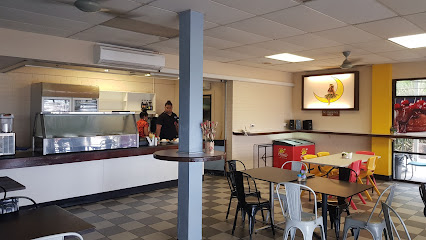
Capelle and Partner
Explore Capelle and Partner in Ronave for an unforgettable shopping experience with local flavors and unique treasures.
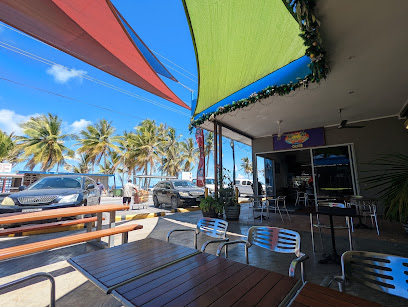
Ewa Lodge
Experience the charm of Nauru at Ewa Lodge, the perfect accommodation for travelers seeking comfort and adventure on this beautiful island.
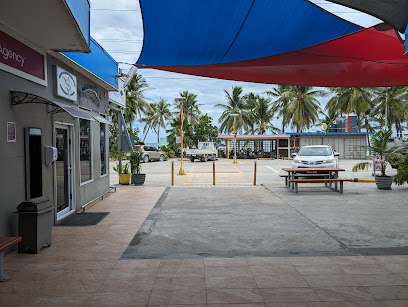
The Bay Restaurant
Experience the flavors of Anibare at The Bay Restaurant, where stunning views and exquisite cuisine meet in a tropical paradise.
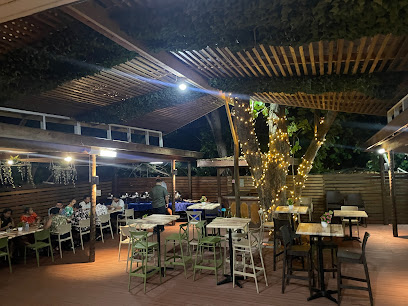
Geography of Nauru
Explore the stunning landscapes and rich history of Nauru, the Pacific's hidden gem featuring beautiful beaches and unique geological marvels.
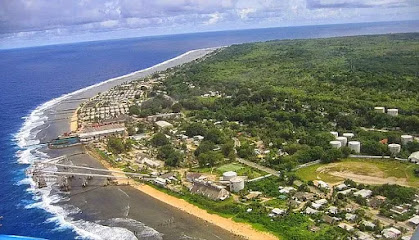
Od-N Aiwo Hotel
Discover the charm of Boe at Od-N Aiwo Hotel, where comfort meets nature in a tranquil setting.

Jules On The Deck
Discover the vibrant nightlife at Jules On The Deck in Nibok, where stunning views and delicious drinks create the perfect evening escape.
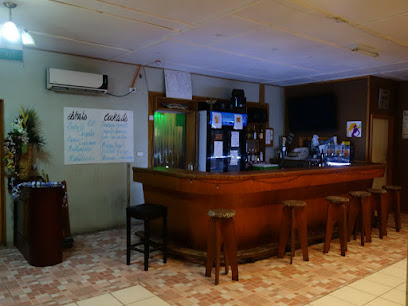
Eigigu Supermarket
Explore local flavors and essentials at Eigigu Supermarket, Boe's go-to grocery store for tourists and locals alike.
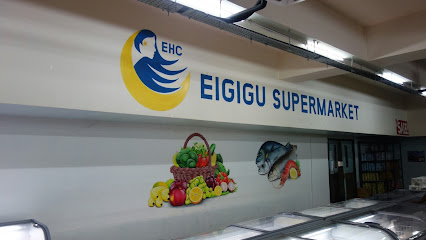
Reef Bar
Discover the vibrant atmosphere of Reef Bar in Anibare, where locals and tourists unite for unforgettable drinks and entertainment.
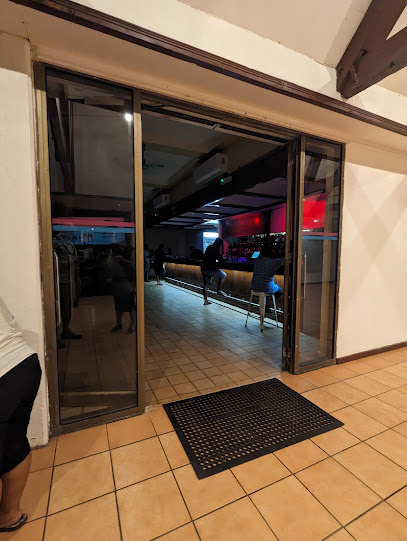
Nauru
Explore the pristine beauty and cultural richness of Nauru, a hidden gem in the Pacific offering unique experiences for every traveler.
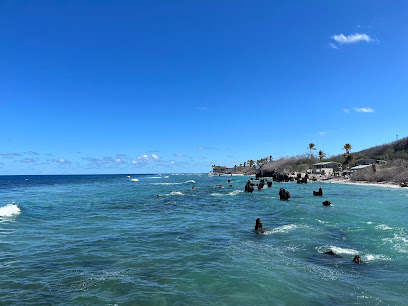
Mr Chippies
Discover the culinary delight of Mr. Chippies in Anibare, where local flavors and friendly service create an unforgettable dining experience.
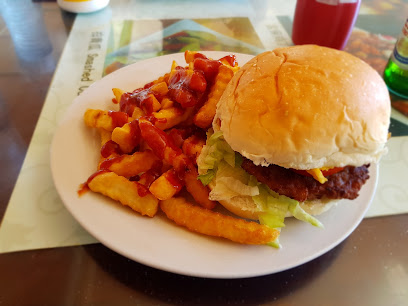
Anibare Boat Harbour Restaurant
Discover delicious cuisine and stunning ocean views at Anibare Boat Harbour Restaurant, a culinary gem on the shores of Anibare.
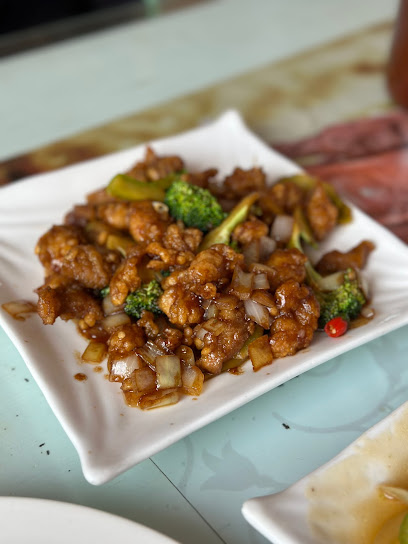
Florrowest Restaurant
Discover the vibrant flavors of Boe at Florrowest Restaurant, where local ingredients meet culinary creativity for an unforgettable dining experience.
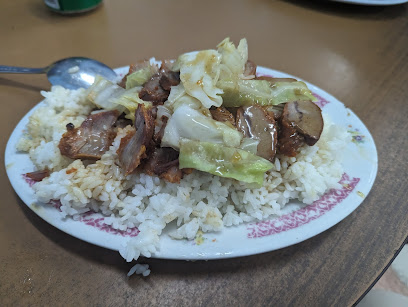
Local Phrases
-
- HelloKam na bwa
[kam nah bua] - GoodbyeI sere
[ee se-reh] - YesIo
[ee-oh] - NoAe
[eye] - Please/You're welcomeKoar
[ko-ahr] - Thank youKamawar
[kah-mah-war] - Excuse me/SorryKareke
[kah-reh-keh] - How are you?Kam aom?
[kam owm] - Fine. And you?Aer. I aom?
[eye-ehr. ee owm] - Do you speak English?Aom a moainglish?
[owm ah mow-eng-lish] - I don't understandAe a kaureke
[eye ah kow-reh-keh]
- HelloKam na bwa
-
- I'd like to see the menu, pleaseAe kabon a kaboni, koar
[eye kah-bohn ah kah-boh-nee, ko-ahr] - I don't eat meatAe a kai ai noi
[eye ah kai eye noy] - Cheers!Koar
[ko-ahr] - I would like to pay, pleaseAe kabon a kareke, koar
[eye kah-bohn ah kah-reh-keh, ko-ahr]
- I'd like to see the menu, pleaseAe kabon a kaboni, koar
-
- Help!Kam aro!
[kam ah-roh] - Go away!I kai aro!
[ee kai ah-roh] - Call the Police!Aom a tibon a polis!
[owm ah tee-bohn ah poh-lees] - Call a doctor!Aom a tibon a dokita!
[owm ah tee-bohn ah doh-kee-tah] - I'm lostAe ai ake
[eye eye ah-keh] - I'm illAe ai a kauro
[eye eye ah kow-roh]
- Help!Kam aro!
-
- I'd like to buy...Ae kabon a ka...
[eye kah-bohn ah kah] - I'm just lookingAe ai aobo
[eye eye ah-oh-boh] - How much is it?En na ko?
[en nah koh] - That's too expensiveEn a kaureke
[en ah kow-reh-keh] - Can you lower the price?Aom a tibon a ko?
[owm ah tee-bohn ah koh]
- I'd like to buy...Ae kabon a ka...
-
- What time is it?En na kai?
[en nah kai] - It's one o'clockEn a kai aro
[en ah kai ah-roh] - Half past (10)I ai aro
[ee eye ah-roh] - MorningMaing
[mah-eeng] - AfternoonIro
[ee-roh] - EveningAkiro
[ah-kee-roh] - YesterdayA maong
[ah mow-ng] - TodayI ake
[ee ah-keh] - TomorrowA ake
[ah ah-keh] - 1Ake
[ah-keh] - 2Aro
[ah-roh] - 3Ai
[eye] - 4Ae
[eye] - 5Eara
[eh-ah-rah] - 6Eare
[eh-ah-reh] - 7Eare ake
[eh-ah-reh ah-keh] - 8Eare aro
[eh-ah-reh ah-roh] - 9Eare ai
[eh-ah-reh eye] - 10Ain
[ah-een]
- What time is it?En na kai?
-
- Where's a/the...?En ai a/the...?
[en eye ah/the] - What's the address?En a ai?
[en ah eye] - Can you show me (on the map)?Aom a teken a kaoni (en a map)?
[owm ah teh-kehn ah kah-oh-nee (en ah map)] - When's the next (bus)?En a aro a ekai (bus)?
[en ah ah-roh ah eh-kai (buhs)] - A ticket (to ....)A tibon (ki ....)
[ah tee-bohn (kee)]
- Where's a/the...?En ai a/the...?
History of Boe
-
The history of Boe, like the rest of Nauru, begins with its early settlement by Micronesian and Polynesian people over 3,000 years ago. The indigenous culture was rich with traditions, customs, and a deep connection to the land and sea. The ancient Nauruans developed a complex society with unique social structures and practices, including traditional fishing techniques and navigation skills.
-
In the late 19th century, Nauru, including Boe, came under European influence. In 1888, Germany annexed Nauru as part of its colonial empire. The German period brought significant changes, including the introduction of Christianity and new economic activities. The German administration left a lasting impact on the island's social and cultural fabric.
-
The discovery of phosphate on Nauru in 1900 marked a turning point in the island's history. Boe, like other districts, saw rapid development as the phosphate industry boomed. The British Phosphate Commission began mining operations, leading to an influx of workers and economic prosperity. This period of wealth significantly shaped the infrastructure and lifestyle of Boe's residents.
-
During World War II, Nauru, including Boe, was occupied by Japanese forces from 1942 to 1945. The occupation was a harsh period for the island's inhabitants, with many being forced into labor and others evacuated to Truk (Chuuk) in the Federated States of Micronesia. The war left a lasting impact on the community, both physically and psychologically.
-
Nauru gained independence from Australia, New Zealand, and the United Kingdom on January 31, 1968. Boe, as part of the newly independent nation, experienced a sense of national pride and identity. The transition to self-governance brought about significant political and social changes, and Boe played its role in the formation of the young republic.
-
The extensive phosphate mining on Nauru, including Boe, led to severe environmental degradation. In recent years, efforts have been made to rehabilitate the mined-out lands and restore ecological balance. These initiatives are crucial for the sustainable future of Boe and the entire island, as the community works towards overcoming the challenges posed by decades of exploitation.
-
Today, Boe is a vibrant district that reflects the resilience and adaptability of its people. Despite the challenges faced throughout its history, the community maintains a strong cultural identity and sense of heritage. Traditional practices, local festivals, and communal activities continue to play an essential role in the social fabric of Boe, ensuring that its rich history is preserved for future generations.
Boe Essentials
-
Boe is located on the island nation of Nauru in the Pacific Ocean. The main point of entry to Nauru is via Nauru International Airport (INU), situated in Yaren District, just a short drive from Boe. Nauru Airlines operates flights to and from Nauru, connecting it to destinations such as Brisbane, Australia; Nadi, Fiji; and Tarawa, Kiribati. From the airport, you can take a taxi or arrange for a hotel transfer to reach Boe.
-
Transportation within Boe and the rest of Nauru is relatively straightforward given the island's small size. Taxis are available and can be booked through your accommodation. There is no public bus system, but renting a car or a bicycle is a popular and convenient way to explore the island at your own pace. Walking is also a practical option for short distances.
-
The official currency of Nauru is the Australian Dollar (AUD). Credit cards are accepted in some hotels, restaurants, and shops, but it is advisable to carry cash, especially for smaller establishments. ATMs are limited, so it's a good idea to withdraw sufficient cash upon arrival or before departure from your home country.
-
Boe and Nauru in general are considered safe for tourists. However, standard travel precautions should be taken. Avoid walking alone late at night in isolated areas and always keep an eye on your belongings in crowded places. There are no specific high-crime areas targeting tourists, but staying vigilant is always wise.
-
In case of emergency, dial 110 for police assistance or 111 for medical emergencies. Nauru has a hospital in Yaren District, which is equipped to handle most medical situations. It is highly recommended to have travel insurance that covers medical emergencies. For minor health issues, pharmacies are available where you can purchase over-the-counter medications.
-
Fashion: Do wear light, casual clothing suited to a tropical climate. Avoid wearing overly revealing clothes, especially in more conservative areas. Religion: Do respect local customs and traditions. Although Nauru is not highly religious, showing respect is always appreciated. Public Transport: Since there is no public bus system, using taxis or renting vehicles is common. Treat drivers with respect and agree on fares beforehand. Greetings: Do greet locals with a warm smile and a handshake. Nauruans are generally friendly and welcoming. Eating & Drinking: Do try local dishes and be open to accepting food offerings. Refusing hospitality can be considered impolite.
-
To experience Boe like a local, visit the local markets and interact with the residents. Enjoy traditional Nauruan dishes such as coconut fish and pandanus fruit. Engage in conversations with locals to learn about their way of life and the history of the island. For a unique experience, take a walk along the coastline during sunset for breathtaking views.
Nearby Cities to Boe
-
Things To Do in Aiwo
-
Things To Do in Buada
-
Things To Do in Yaren
-
Things To Do in Denigomodu
-
Things To Do in Uaboe
-
Things To Do in Anibare
-
Things To Do in Ijuw
-
Things To Do in Anabar
-
Things To Do in Kosrae
-
Things To Do in Mili
-
Things To Do in Majuro
-
Things To Do in Aur
-
Things To Do in Lata
-
Things To Do in Auki
-
Things To Do in Tulagi





